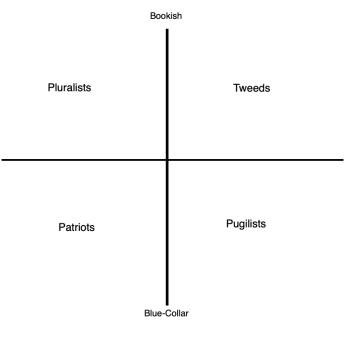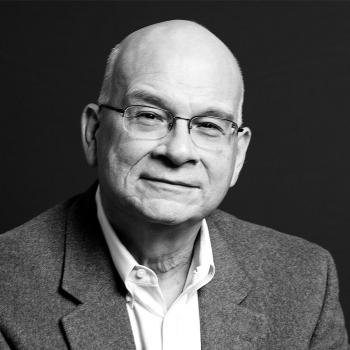 Like a decent number of other people I know, I began my fiction-reading journey as an adult with a transition from high-fantasy epics (Tolkien, Brooks, Jordan) to thick stacks of classics (Dickens, Brontë, Dumas). That shift was, in turn, followed up by forays into thriller fiction (Crichton, Cussler, Koontz) and more modern literary classics (Fitzgerald, Steinbeck, Flannery O’Connor).
Like a decent number of other people I know, I began my fiction-reading journey as an adult with a transition from high-fantasy epics (Tolkien, Brooks, Jordan) to thick stacks of classics (Dickens, Brontë, Dumas). That shift was, in turn, followed up by forays into thriller fiction (Crichton, Cussler, Koontz) and more modern literary classics (Fitzgerald, Steinbeck, Flannery O’Connor).
But of course, there was other stuff too. Somewhere along the way, I couldn’t help but stumble across a genre of midcentury American writing that could roughly be described as downstream of Salinger’s Catcher in the Rye—what one might call “masculine fiction.” As Alex Perez argues in a recent piece at the online magazine IM:1776:
Writers like Philip Roth, Saul Bellow, Hunter S. Thompson and Norman Mailer, or even little Martin Amis, attacked the page with a masculine gusto that produced novels such as Roth’s Portnoy’s Complaint, a hilarious coming-of-age story that depicts the male libido in all its absurdity. . . . There was a gleeful aggressiveness to the bad boys’ writing, and to the way they carried themselves. . . . It was puffed up buffoonery, sure, but in this era of the manicured artist, where writers and their publicists meticulously cultivate their brands, it’s electrifying to watch a literary great flail like a madman. Which begs the question: where have all the literary bad boys gone?
Perez goes on to argue that to the extent it still exists, this genre of “gritty realism”—absorbed with the gnarly details of the human body—is now largely dominated by female authors such as Ottessa Moshfegh, whose 2018 novel My Year of Rest and Relaxation chronicled its protagonist’s quest to sleep for the better part of an entire year through heavy use of prescription drugs.
It’s undeniable, though, that at one point the subgenre reckoned with specifically masculine neuroses—and if that’s what one’s searching for, one must look elsewhere. Indeed, for Perez, the real heirs apparent to this tradition of transgressive prose aren’t published by mainstream presses, but are driven to write pseudonymously in the corners of the internet, going by Twitter handles like “Zero HP Lovecraft” and “Bronze Age Pervert.” (As Becca Rothfeld points out in Liberties, there’s not much of an audience among contemporary publishers for this sort of thing anymore.)
And yet it seems to me that Perez’s analogy fails, for the simple reason that there’s an important distinction to be drawn between social critique and misanthropy. For instance, the innard-twisting horror of Zero HP Lovecraft’s novellas comes from their spellbinding depictions of near-future worlds that are at once both alien and familiar: this is what we could be—what we may very well become soon. And at their best, they rival anything in Stephen King’s oeuvre. But almost without exception, their characters can feel like cardboard cutouts, props pressed into the service of a cri de coeur against the status quo. And something similar can be said of the Nietzschean bestseller Bronze Age Mindset, with its obsessive focus on separating the human race into categories of neutered “bugman” and Übermensch. Distant from view is the possibility that each of us harbors the capacity for both horror and heroism, bugmanhood and bodybuilderdom.
Characteristic of “dissident right” writing is an overweening hatred of mass culture and those who inhabit it, a hatred that necessarily papers over the complexity of individuals’ inner lives. And yet, it seems to me that—just as Charles Taylor has argued that in a pluralistic world, all modern people must necessarily find themselves “cross-pressured” between belief and skepticism—people are always caught between exemplifying their highest ideals or their worst vices. And that’s something the previous generation of “masculine writers” grasped: to name but one example, the Nathan Zuckerman of Roth’s The Human Stain is flawed, but still recognizably human—as is the milieu he inhabits. Indeed, I daresay the proper points of comparison for today’s “dissident conservative” literature aren’t Roth and Thompson, but rather Bret Easton Ellis and Chuck Palahniuk—whose work manifests their disdain for the contemporary world and its residents in gruesomely spectacular ways.
Put more succinctly, I suppose what I’m suggesting is that the things that men find meaningful in this genre aren’t necessarily found in screeds written with a Unabomber-style contempt for modern civilization. Rather, the point is the acknowledgment of the messiness of life coupled with the possibility of redemption—one might even call it “capacity for grace.” The characters that resonate are those like Don Gately in David Foster Wallace’s Infinite Jest—capable of, within the course of a single novel, sinking to the depths of addiction and rising to the heights of physical heroism.
It’s possible to describe that odyssey in unflinching detail, without reducing everyone beyond the self to bit players in a paean to male discontent. If human beings are more than meat-sacks in motion—as I happen to believe—a literary tone of thoroughgoing contempt or objectification isn’t a reckoning with “authenticity,” but simply another form of deception.












